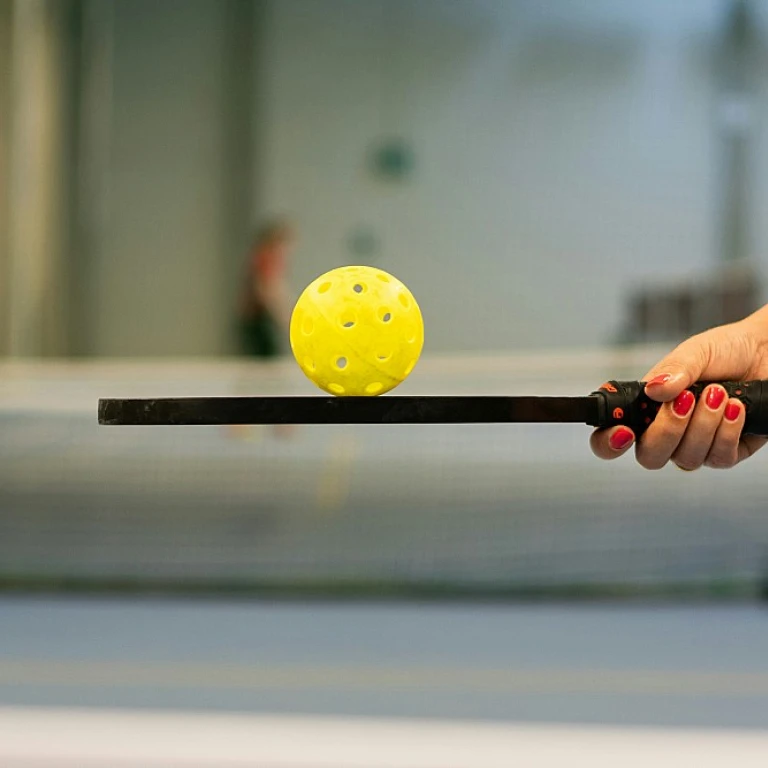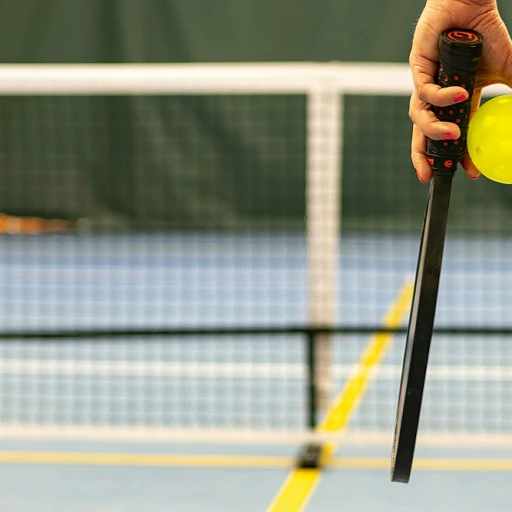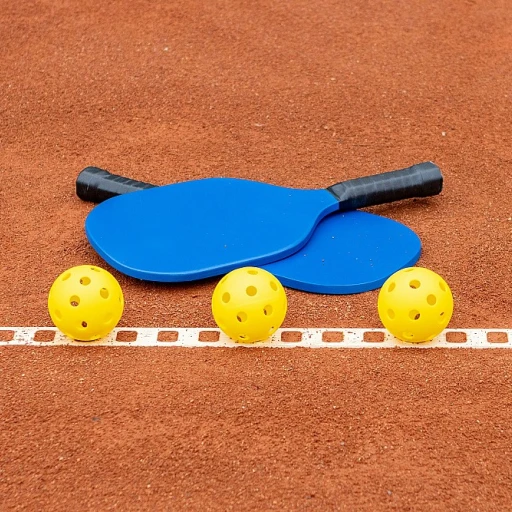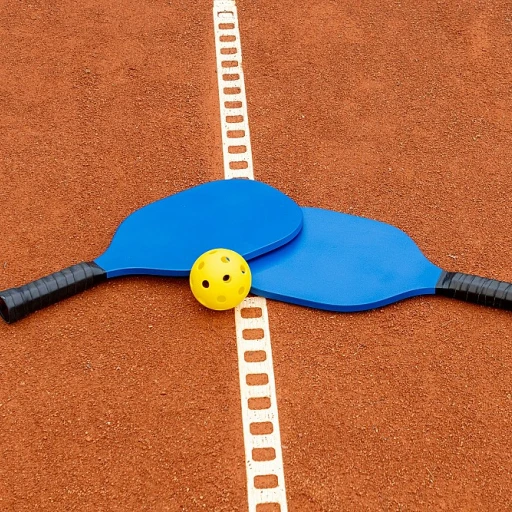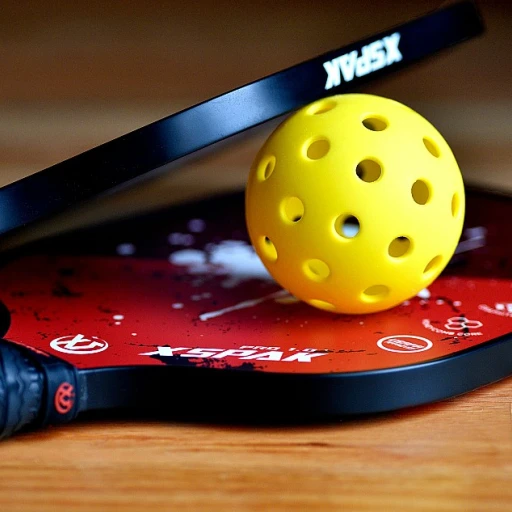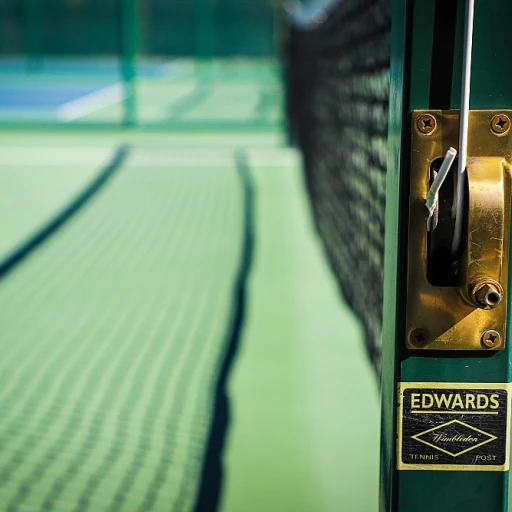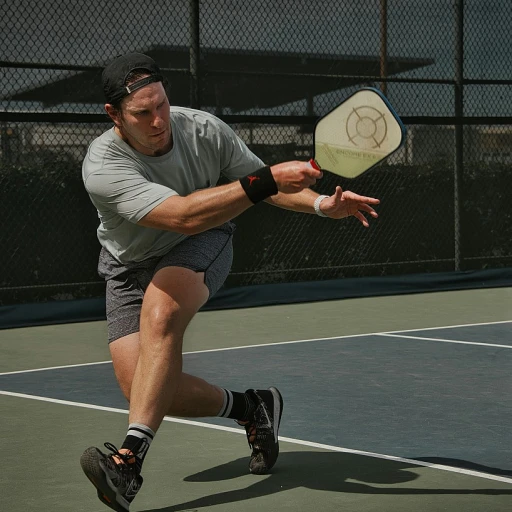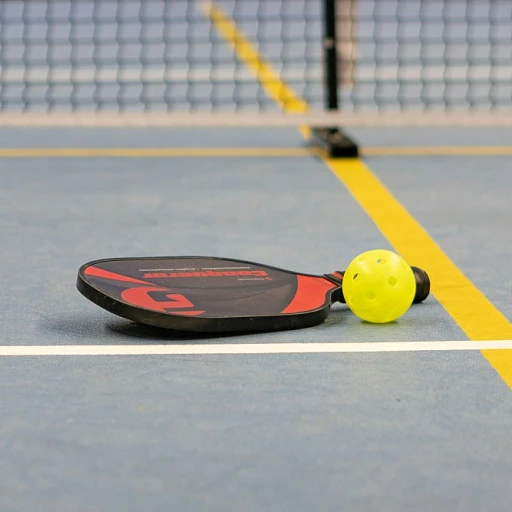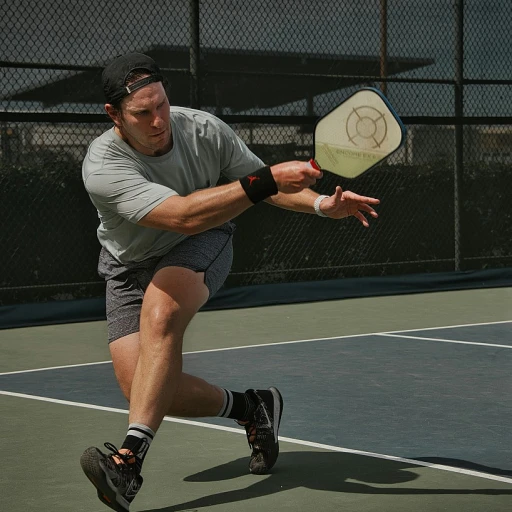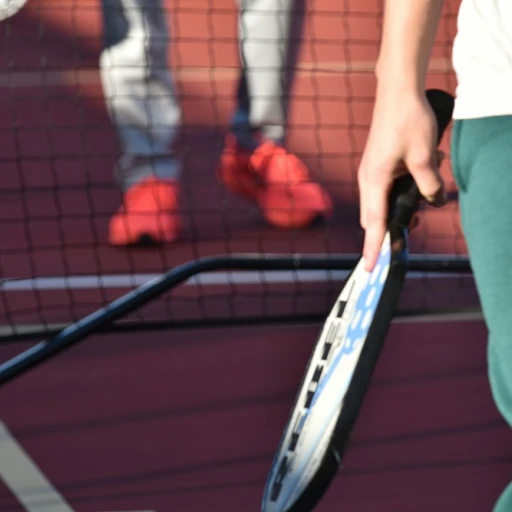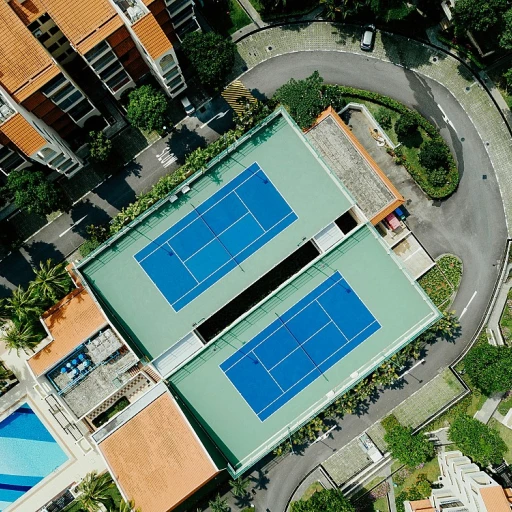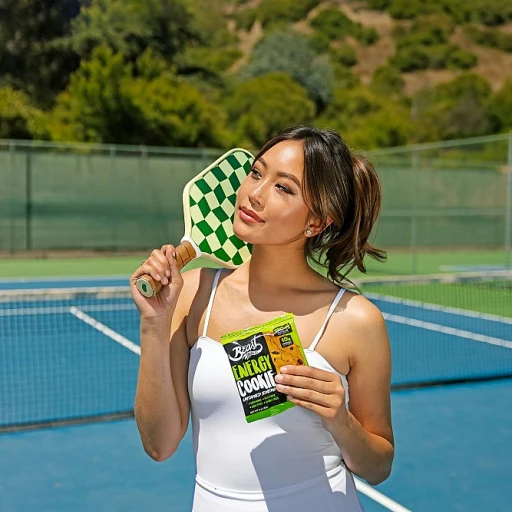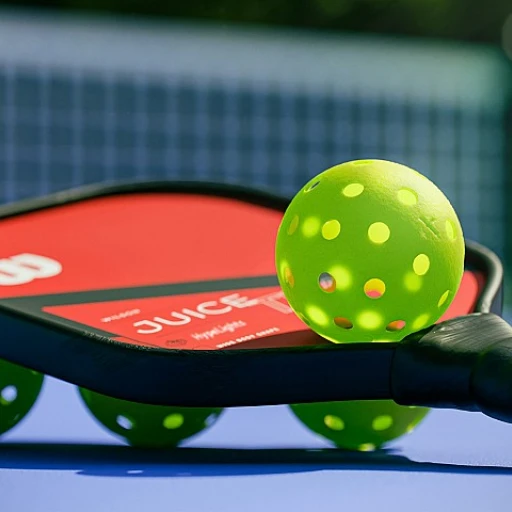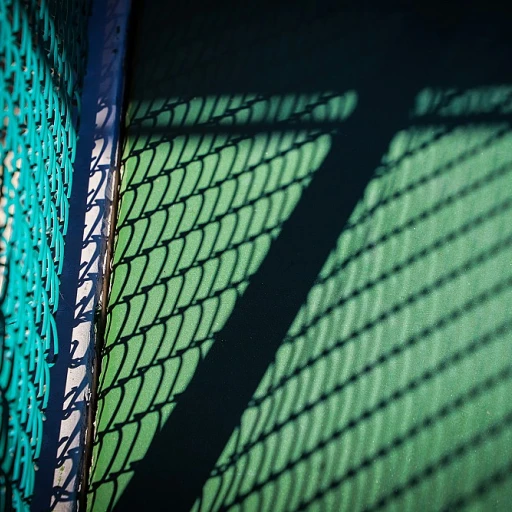
Understanding the Importance of Salt in Sports
Fuel for Athletic Endeavors
Salt is more than just a seasoning; it's a vital ingredient for sports performance. In the realm of athletic endeavors, including pickleball, understanding the role of salt can make the difference between winning and losing. Salt, primarily in the form of sodium chloride, aids in muscle function and nerve transmission, both of which are critical for athletes.
The Essential Electrolyte
Electrolytes like salt help maintain fluid balance in the body. This is particularly important for pickleball players, as the sport involves quick, intense movements that can lead to sweating and electrolyte loss. Ensuring adequate salt levels can prevent dehydration, which negatively impacts performance.
The Impact on Energy Levels
A well-maintained level of salt is crucial for maintaining optimal energy levels during long matches. Salt helps retain water and ensures that muscles receive sufficient oxygen, thereby prolonging endurance and reducing fatigue. The body's ability to use energy efficiently hinges on a delicate balance of salt.
Understanding the science behind salt can elevate your game and, interestingly, it connects to food traditions as well. From dill pickles to fermented pickles, the relevance of salt in our daily lives is undeniable. Salt enhances flavor, but it also has a crucial role in sports. Explore more about this aspect with a deep dive into equipment specifics that compliment your playing style.
How Salt Affects Pickleball Players
How Salt Influences Performance on the Court
Salt plays a crucial role in maintaining the balance of electrolytes in our bodies, which is essential for peak athletic performance, including in sports such as pickleball. As players sweat on the court, they lose not only water but also significant amounts of sodium, a critical electrolyte found in table salt and other variations like sea salt and kosher salt.
The brine and pickling aspect of salt highlights its ability to preserve and enhance flavors, much like it enhances bodily functions during a physical game. For instance, utilizing dill pickle or pickle brine as a dietary supplement provides the twang of flavor that some athletes crave, while also offering a source of sodium to combat deficiencies.
For players of pickleball, staying hydrated with the right amount of sodium helps to maintain nerve function and muscle contraction, critical for quick movements on the court. The pickle flavored or flavored salt products available in the market could serve as a deliciously enticing way to keep this balance in check.
Reviews and expert insights frequently highlight that an imbalance, especially a deficiency of salt, can lead to muscle cramps, fatigue, and a decrease in overall performance. Athletes have noted that incorporating fermented pickles or simply adjusting daily consumption of dried dill and seasoning salt may relieve such issues in the short term.
If you're passionate about exploring this salty world further, consider staying updated with the latest developments in pickleball to optimize your performance holistically.
Balancing Salt Intake for Optimal Performance
Achieving the Perfect Salt Balance for Performance
Ensuring your salt intake is balanced can greatly influence your pickleball performance. Salt plays a critical role in maintaining hydration levels during intensive play, and an optimal balance can enhance endurance and muscle function. However, the question arises: how much is too much?
The answer isn't always straightforward. While a certain amount of salt is necessary, particularly pickle salt or sea salt, for keeping muscles functioning smoothly, consuming too much can lead to bloating and dehydration. This involves understanding the right mix of ingredients in your diet, such as using dill pickle seasoning salt or even experimenting with pickling salt to ensure no shortage or excess of sodium intake.
For those regularly engaging in the sport, it may be beneficial to monitor your body's reaction to various levels of sodium consumption. Some pickleball enthusiasts find success incorporating foods with real dill pickles or diluted pickle brine into their routines to quickly replenish sodium.
- Stay hydrated by drinking plenty of water and consider beverages that contain natural sodium, like a mild pickle brine.
- Experiment with sodium sources like kosher salt or flavored salt options that might add that extra twang pickle flavor to your meals.
- Consider adding small amounts of dill weed, either fresh or dried dill, into your recipes as a flavorful way to increase your sodium intake.
Overall, monitoring your response to these dietary changes and consulting with a nutrition professional can also be pivotal in maintaining a balance that suits your individual needs on the court.
Signs of Salt Deficiency in Pickleball Players
Identifying When Your Body Needs More Salt
In the midst of a competitive pickleball match, your body works hard to maintain equilibrium. However, intense physical activity can sometimes lead to a deficiency in salt, which in turn can affect your overall performance on the court. Recognizing the signs of salt deficiency can enable players to swiftly address these issues and maintain their competitive edge. One of the primary indicators of a lack of salt is muscle cramps. As pickleball involves frequent bursts of movement, cramps can hinder players from executing quick maneuvers. If these cramps become a frequent issue, it might be a sign that more salt needs to be incorporated into your diet. Other signs include persistent fatigue despite adequate rest and hydration. This may be accompanied by headaches, nausea, or dizziness during play. These symptoms often point towards an imbalance in electrolytes, necessitating a closer examination of your salt intake amongst other factors. In some cases, you may also experience an unusual craving for salty foods like pickles or dill-flavored snacks. This craving is your body's natural way of signaling its need for additional salt to help regulate fluid balance and other bodily functions. While adjusting your salt consumption, it is essential to consider a variety of seasonings and products. Including flavored salts like kosher salt, canning salt, or even a dash of dill weed may not only bolster your salt intake but also enhance the flavor of your meals. The twang of pickling salt and the inclusion of fermented pickles in your diet can add both variety and essential nutrients. By recognizing these tell-tale signs, players can make informed decisions about managing their salt intake to ensure peak performance in pickleball.Practical Tips for Managing Salt Levels
Efficient Tips for Salt Management in Your Pickleball Game
For pickleball enthusiasts keen on optimizing their performance, managing salt intake effectively is crucial. Due to the physical nature of the sport, players may experience significant electrolyte loss, and salt plays a vital role in maintaining electrolyte balance. Here are some practical strategies to consider:
- Monitor Consumption: Keep track of your daily salt intake to ensure it aligns with your physical activity levels. Utilize seasoning salt, flavored salt, or dried dill to add variety in your meals without excessive consumption.
- Hydration: It's essential to balance salt with adequate fluid intake. Drinking water enriched with salts, such as pickle brine or dill pickle juice, can effectively replenish lost electrolytes. Consider canning or pickling your own dill pickles to have a ready supply of pickle flavored drinks.
- Include Natural Sources: Incorporating fermented pickles or foods rich in natural salts can offer a healthy alternative. Use kosher salt or sea salt in your pickling recipes for an added nutritional boost.
- Choose High-Quality Salt: Opt for pickling salt or canning pickling varieties for better-quality flavor and lower additives in your diet.
- Be Mindful of Signs: As discussed earlier, understanding the signs of salt deficiency can help tailor your intake accordingly. Regularly reviewing your performance and well-being will guide adjustments needed.
Each of these tips can help you craft a diet that supports your active lifestyle in pickleball, ensuring you're at your best on the court without unbalanced salt levels interfering with your game.

